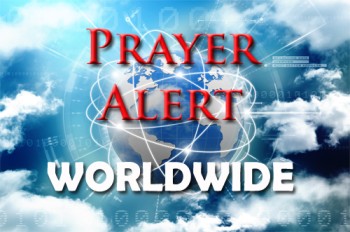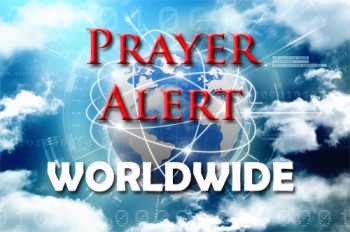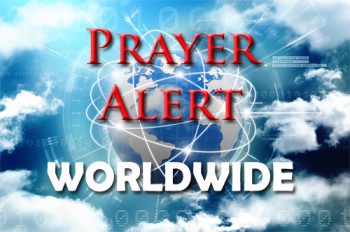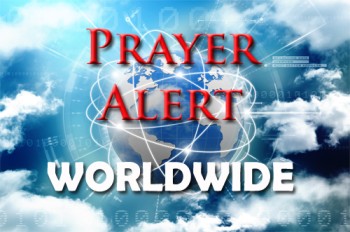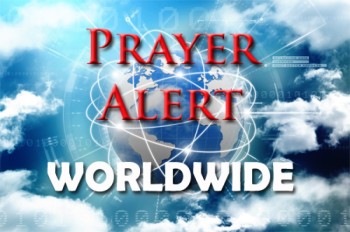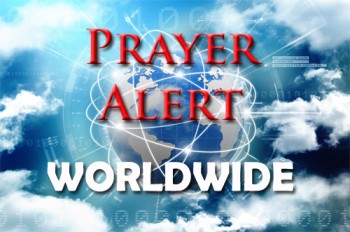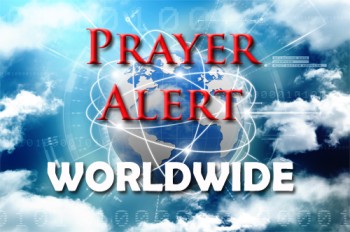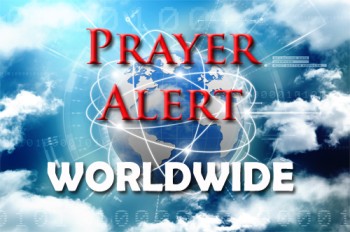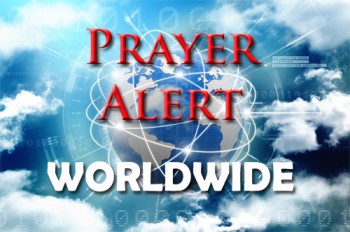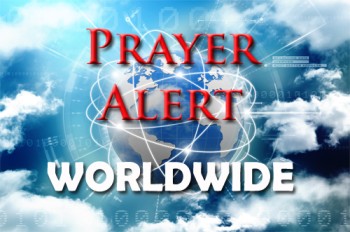Displaying items by tag: Somalia
Somalia: president narrowly avoids al-Shabaab bomb
On 18 March Somalia’s president, Hassan Sheikh Mohamud, narrowly survived a roadside bombing in Mogadishu. The massive explosion killed at least ten people, including several presidential bodyguards and one journalist. Al-Shabaab claimed responsibility, highlighting security vulnerabilities as the militant group advances toward Mogadishu. The attack occurred while the president was traveling to oversee military operations against the terrorist group. Following the bombing, Somali police briefly shut down a local radio station and detained 22 journalists who reported the attack. Police allegedly deleted their footage before releasing them. The group, linked to al-Qaeda, has vowed to capture the capital before June, intensifying concerns over regional stability; they are advancing towards Balcad, only thirty kilometres away.
Somalia: educational consquences of huge floods
Heavy rains have flooded schools in Somalia's central Hiran region, forcing over 37,000 students out of school. The flooding has damaged learning materials and classrooms, displacing many students to distant locations and complicating efforts to resume education. Parents fear the disruption will negatively affect their children's performance in upcoming national exams, and local teachers are concerned about the long-term impact on education. Parents are urging the government to establish schools on higher grounds to avoid future disruptions. Last year, the government organised special exams after similar flooding incidents. Officials say they are committed to ensuring students can participate in exams despite the current challenges.
India to prosecute 35 Somali pirates
India is set to prosecute 35 Somali pirates captured after freeing a ship which they had hijacked on 14 December in the Northern Arabian Sea. The rescue operation, lasting about 40 hours, involved drones, navy vessels, and marine commandos.The pirates, due to arrive in India soon, will face legal action, although specific charges were not disclosed. This was the first commercial ship hijacking by Somali pirates since 2017, but another ship was hijacked on 12 March. India has bolstered its naval presence internationally, and aims to police the Gulf of Aden to prevent Houthi attacks on ships linked to Israel. The Houthis, controlling most of Yemen, have threatened to target ships until Israel halts what they term as genocide in Gaza.
Ethiopia / Somaliland: port agreement angers Somalia
An agreement on 1 January by breakaway Somaliland to allow Ethiopia to use the Red Sea port of Berbera has been condemned by Somalia as dangerous for regional stability. Since 1991, when Eritrea gained independence, Ethiopia has been landlocked and reliant on neighbouring Djibouti for maritime trade access. The new agreement, signed by the Ethiopian prime minister and Somaliland’s president, includes acknowledging Somaliland as an independent nation and giving it a share of the ownership of Ethiopian Airlines in due course. Somaliland, which declared autonomy in 1991, lacks widespread international recognition; Somalia insists that it remains part of its territory. Following mediation by Djibouti, the two countries have agreed to restart talks to resolve their dispute.
Somalia: Christian Aid prayer for East Africa
43,000 people died during Somalia’s longest drought on record. 18,000 deaths are expected in the first half of 2023. Christian Aid is urging the UK's government to act immediately and for us to pray the following prayer. ‘Loving God, When Famine stalks the land, nothing grows. Plants cannot, people cannot, ideas and dreams cannot, and everything dies. It is a violent anomaly of your will for the world, and it is multiplied by covid conflict and climate change. God of flourishing fields, there is enough to feed everyone. Call us to that sacred sharing neighbour to global neighbour Your gifts of food, water, a chance to live the life so delicately crafted by your divine spirit. May we turn towards each other with generosity and justice-driven compassion that searches for solutions. Famine stalks the land, so may our outrage grow, may our determination steel itself, and may our solidarity spur us into action. Help us feed each other. Amen’
Somalia: drought and deaths
11-year-old Dahir's brother died of hunger. His two sisters are fighting sickness and malnutrition caused by drought. Authorities want the international community to recognise the crisis as a famine. ‘I'm worried about my sisters. I wash them. I wash their faces’, says Dahir, glancing at six-year-old Mariam, coughing hoarsely and complaining of headache, and four-year-old Malyun, lethargic with sunken eyes. Measles and pneumonia are rampant, killing many younger children with immune systems weakened by malnutrition. At hospitals’ intensive care wards, doctors and nurses insert fluid drips into emaciated infants' arms and oxygen tubes into tiny nostrils. Children's limbs are dark and blistered as if severely burnt - a painful reaction to prolonged starvation. The hospital's head doctor said, ‘The world is paying attention to Somalia's drought now. We see visitors from international donors. But that doesn't mean we are getting enough support. I hope it will come soon. It is a desperate situation.’
Somalia: brink of starvation
For three decades Somalia has lurched between disorder and anarchy. The government controls only bits of the country. The rest is in the hands of al-Shabab jihadists adept at blowing themselves up in crowded places. For many Somalis life is poor, brutish, and short. They live in the world’s fifth poorest and eighth most violent country. Their life expectancy is the sixth lowest. Droughts and floods add to the misery. In 2011 failed rains contributed to the worst famine of the 21st century: more than 250,000 people died, half of them children. A decade later history may repeat itself. The worst drought in four decades is wilting crops and killing livestock. On 5 September government officials said an even greater catastrophe could sweep the country within days or weeks unless more help arrives. Over 18 million people can’t find enough to eat; children are dying. Pray for hospitals to have enough nutritional supplements for children. See also
Horn of Africa: unprecedented famine
Unprecedented famine grips parts of Africa. Four years of droughts, Covid-19, and the Ukraine war have created dire conditions. In Somalia, Ethiopia, and Kenya, one person dies from hunger every 48 seconds. Water sources and wells have dried up. Crops have failed, livestock have died, and 22 million people may starve. Many farmers only grow enough to feed themselves. Many relying on livestock see their animals die. Families forced to flee looking for food embark on very perilous journeys. The level of pain and suffering is devastating. Half of Somalia’s population are experiencing crisis hunger levels. One in three children face chronic malnutrition. Before Ukraine’s war Somalia imported 90% of its wheat from Russia and Ukraine, Ethiopia imported 42%. Kenya 44%, plus oil, iron, steel, and fertilisers. In late August, the first grain shipment from Ukraine brought 23,000 tons of wheat - enough for 1.5 million for a month, a drop in the bucket for needy millions. See also the Europe article on Ukraine cargo ships leaving.
Somalia: al-Shabaab replacing al-Qaeda
On 2 September, al-Shabaab terrorists killed 18 civilians and destroyed several relief trucks in central Somalia. Al-Shabaab has increased attacks over the summer. In August they killed several Somali soldiers and attacked military bases in Kenya, Mali, and Ethiopia. An attack on a Mogadishu hotel lasting 35 hours killed 21 people. Its leaders want to replace al-Qaeda and expand their reach. Al-Qaeda has not found a leader to replace Ayman al-Zawahiri. If one is not chosen soon, al-Shabaab could declare its East African government separate from al-Qaeda and hope to overthrow the government of Somalia itself. They are receiving resources through forcing people to pay taxes by threatening them, bombing their businesses, or kidnapping their daughters. Despite the danger, many continue to share the story of Jesus. These are not US or European missionaries; they are Muslim background believers living in close proximity in the same culture. World Mission sends them solar-powered audio Bibles in the local language.
Somalia: drought, famine, malnutrition
On 31 May the UN's top humanitarian official for the Horn of Africa predicted a devastating outlook for millions of Somalis, amid worsening famine. Before the end of 2022, 7.1 million people will be affected by drought and famine. He said that 1.4 million children face acute malnutrition, and 330,000 are likely to become severely malnourished. Currently 6.1 million Somalis are affected by this drought emergency. Of that number, 771,400 (mostly women and children) have been displaced from their homes in search of water, food and pasture. The outlook has worsened due to the prospects of a fifth consecutive failed rainy season. Pray for God to strengthen and empower all who are providing aid to the hundreds of thousands experiencing acute food insecurity. Pray for medics and medication to be released to those experiencing severe malnutrition and acute watery diarrhoea. Pray for those mourning the deaths of loved ones.
